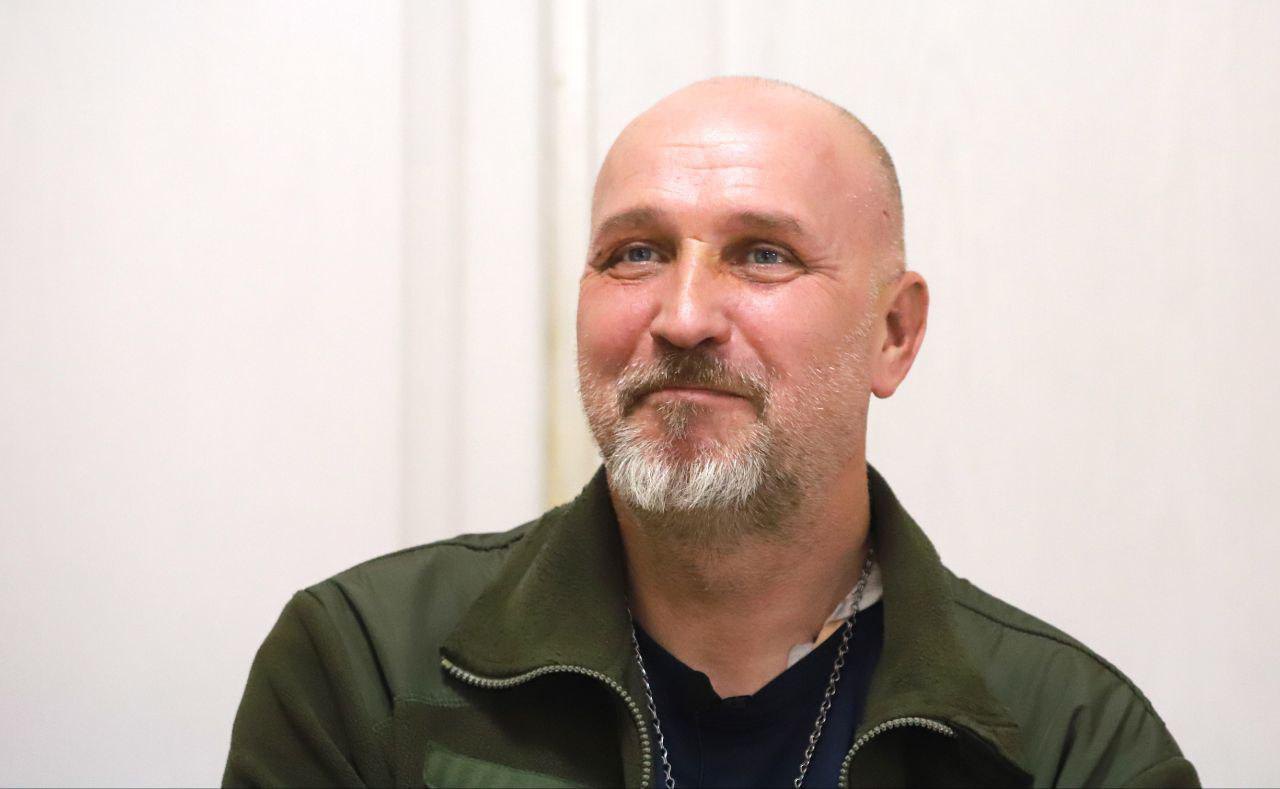
"I said to my family that if the war will start, I need to go"
Tell us about your career and hobbies before this war, please.
I was a bakery manager back in Sweden. I had ended my army career eight years ago. I was baking real bread as a manager of that department. I play death metal in a death metal band as a hobby. Of course, I take care of my kids. They are pretty grown-up, the youngest is seventeen, but you know: small kids – small problems, big kids – big problems.
What military background did you have before coming to Ukraine?
I have been serving in the Swedish army since 1996. I am trained as an Arctic ranger. I was with an anti-tank unit; our task was moving through landscape to hit enemy tanks. I was in a couple of missions before – Kosovo, Macedonia, Afghanistan, and a short one in Liberia.
You have solid combat experience. You knew the risks well. Why did you decide to come to Ukraine?
It's my family history that told me so. The 24th of February, when the war started – that everyone said will not start – it's actually Estonian Independence Day. A large part of my family comes from this country. It is an important day for us. It was pretty confusing, because we wanted to celebrate Independence Day on the day when Russia invaded Ukraine. Already before I said to my family that if the war will start, I need to go. So, they knew that the process was already ongoing.
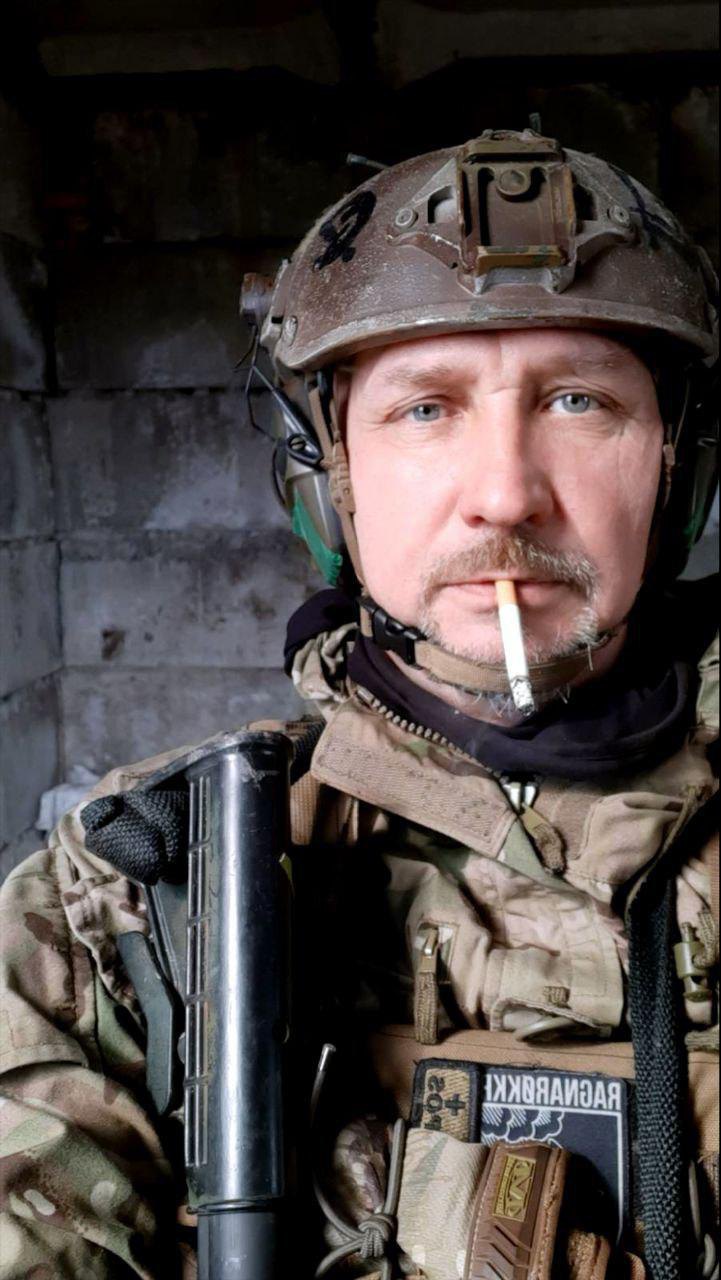
How did your family react to this decision?
My wife was upset, of course. But she was used to that for some periods of life I was abroad and so on. They thought that this war was a bit like the previous missions I've been in. So, in the beginning they were not so glad, but they accepted it. And my sons, they understood me. They may be young, but still. Today they are so proud, but back then we had a lot of conversations when I already came to Ukraine. They said: "Yeah, what they're showing on TV is pretty bad. Take care". They don't want me to die, of course, but they are aware of the risks.
Please tell us about your military experience in Ukraine.
First, I was accepted to the embassy of Ukraine in Sweden. Then I traveled to Poland according to the guidance from the embassy. And then I came to the Legion's training center. Later, we moved from the western Ukraine up north to train with the 1st battalion. After that we were in Kharkiv area. In October, I went home for one month because of family issues. When I came back, I was asked if I want to go to the previous battalion, where I am right now. And I've been there since November.
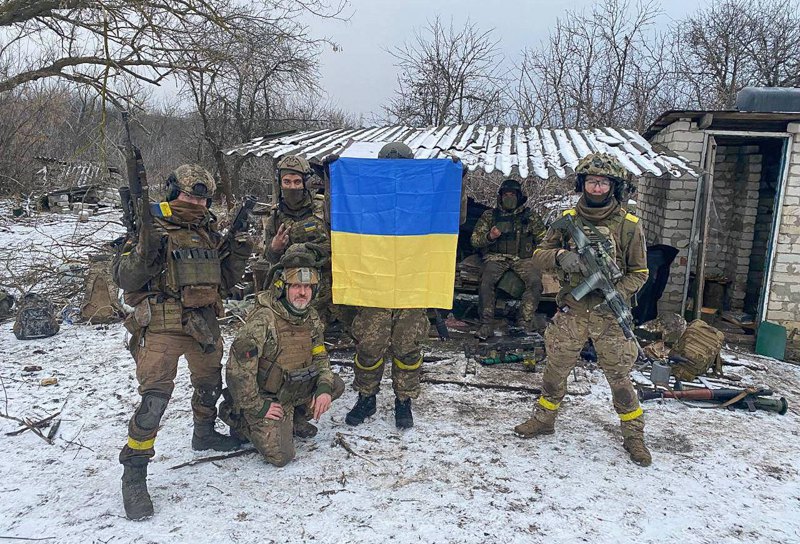
"We met a little bit better Russian units than before"
What is the hardest thing for you in combat?
Everybody who has been in combat knows that combat is like chaos. You need to gather all information, and sometimes there is no information at all. You need to make your own decisions sometimes. And then, you have your wounded around you, and you need to take care of them. You see your brothers getting hurt. You stitch them up, try to pull them out. That's probably the hardest thing. And of course, some of the brothers and sisters actually fall.
Would you like to tell us about your brothers in arms, the ones who are still fighting on the battlefield, or the ones who have fallen?
All the guys I've been working with here, in the beginning it's just some people you never met before, and after a week you're like a family. You know exactly what football team the other guy is cheering for, why he doesn't drink coffee, and what are his sleep habits. You know everything about that person. You are like brothers and sisters in so fast time, and that's impressive. You learn to know each other's strengths and weaknesses – what you are good at, what do you need support with. And you actually help each other to maintain order in team, and support with what's needed. Of course, all that applies also to the fallen ones. All these guys, they've been fantastic soldiers. I am proud to have been serving with them. And I hope I will see them all in Valhalla.
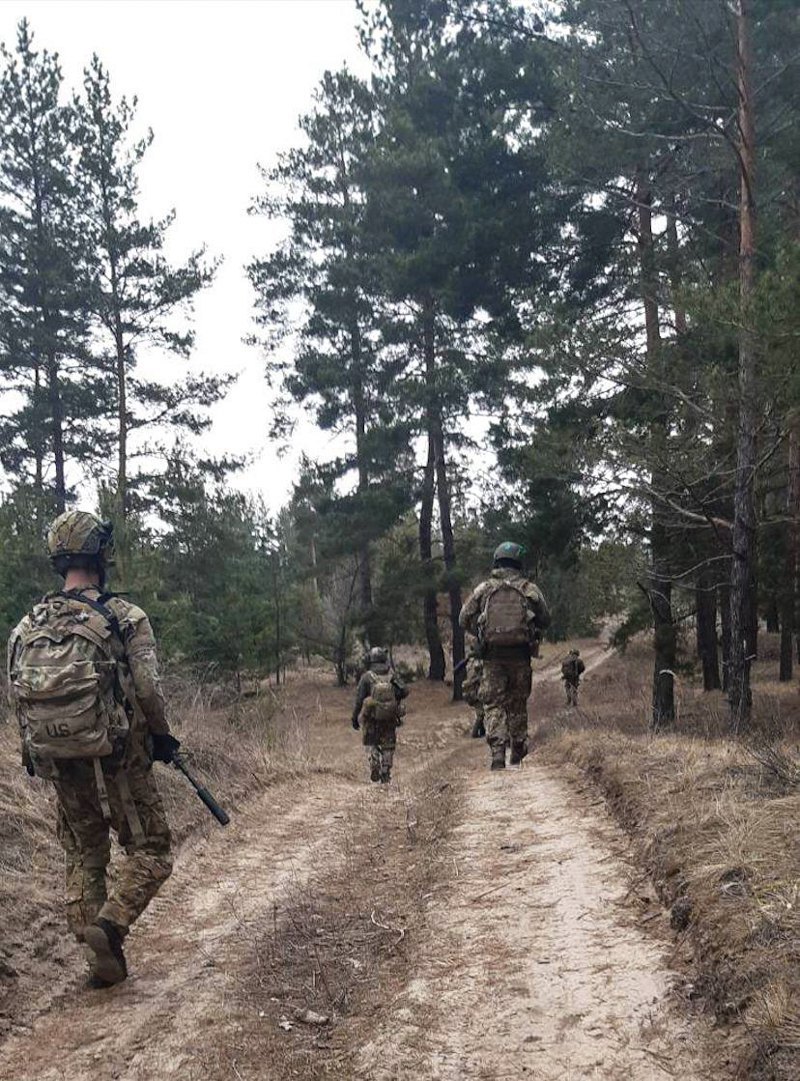
What can you say about the enemy? Can you compare them to any of your adversaries from your previous deployments?
Yes, in respect of one mission I can actually do that. It was in Kosovo in 1999, when we were taking over Kosovo for the UN administration. We met the Yugoslavian army. They had pretty similar tactics and pretty similar way how to approach the war and the way to do things, like Russians do. But that's their only similarity, because here we have so much artillery. These Russians we see on the other side – hopefully, it's the last time they see us – if they are too close, we fix it; if they are too far away, we try to get counterfire from our side.
But also, in the past couple of months I realized that we met a little bit better Russian units than before. They are more motivated, and even if it's much easier to say that your enemy is weak and so on, never underestimate your enemy. Take advantage, but also all the time study what they are doing, how, why, and when they do that.
Many people have experienced the firepower of Russian artillery. Have you also met their infantry and armor in close combat? What can you say about their strengths and weaknesses?
In direct fire, their tanks and BMPs are really good. Working together with infantry – not so good, and I'm really glad about that. They use infantry in front, and that's actually better for us. The cooperation between infantry and mechanized units is not working so well for them.
But a tank is a fucking beast, and if you have a good tank crew on the other side, you keep low position and try to kill it. That actually has changed, in previous months there were a lot of crazy ways how tanks crews managed to drive tanks. There've been a couple of situations like: why are you doing it, you know that you're gonna die. But still, coming under tank fire is no fun. It's no fun at all.
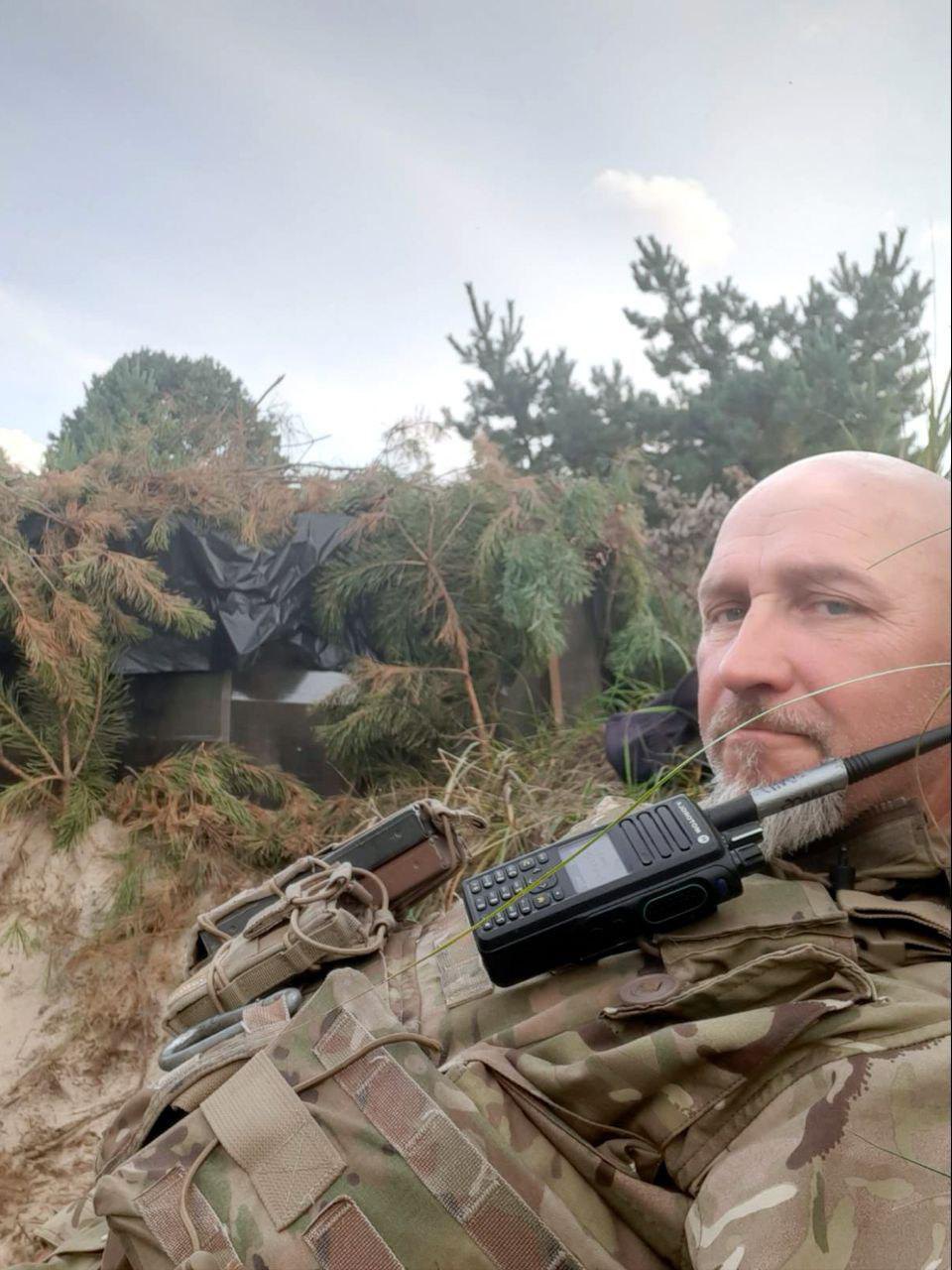
When you were taking part in assault operations, or when driving through recently liberated areas, did you witness any traces of the Russians' stay? Their equipment, other things?
When we had come to the frontline villages, there were no people there. Everybody has probably been evacuated or died. In villages a couple kilometers behind the frontline, there are only the elderly living.
Russian equipment – the burnt one is everywhere, it's fantastic. We occasionally met whole functioning Russian equipment they had left behind. And of course, the trenches, their ration packs, the ammunition they left behind. When we come to the trenches and find all the rest… The trench life is never fun, but I don't know – probably, their officers don't tell them to clean the trenches up.
One more thing is the corpses. Russian corpses usually stay, sometimes in the frontline villages that they actually don't take care of, they leave their own corpses behind. A couple of time we have rescued dogs that have been eating these corpses. They have been there alone, had no food…
What can you say from your own experience about how Russian invaders use landmines and explosives?
They use mines. And grenades, usually F-1, as boobytraps. But the most common bomb is MON mines, that we have encountered in different operations. Of course, when we overrun the enemy positions, we try to sweep over so that they don't mine trenches. But to that point we are lucky, we have not encountered any mines. On the roads, in the forests we use sappers to clear the way. We follow step by step just to be safer, because there are both anti-tank mines, the big ones, and anti-personnel mines, of course.
The mine awareness that I think I got myself, I got it first in Kosovo war. There were a lot of mines there. People actually used hand grenades to secure their home. So, you know that you don't draw drawer before your check. So, all these things – just be careful.
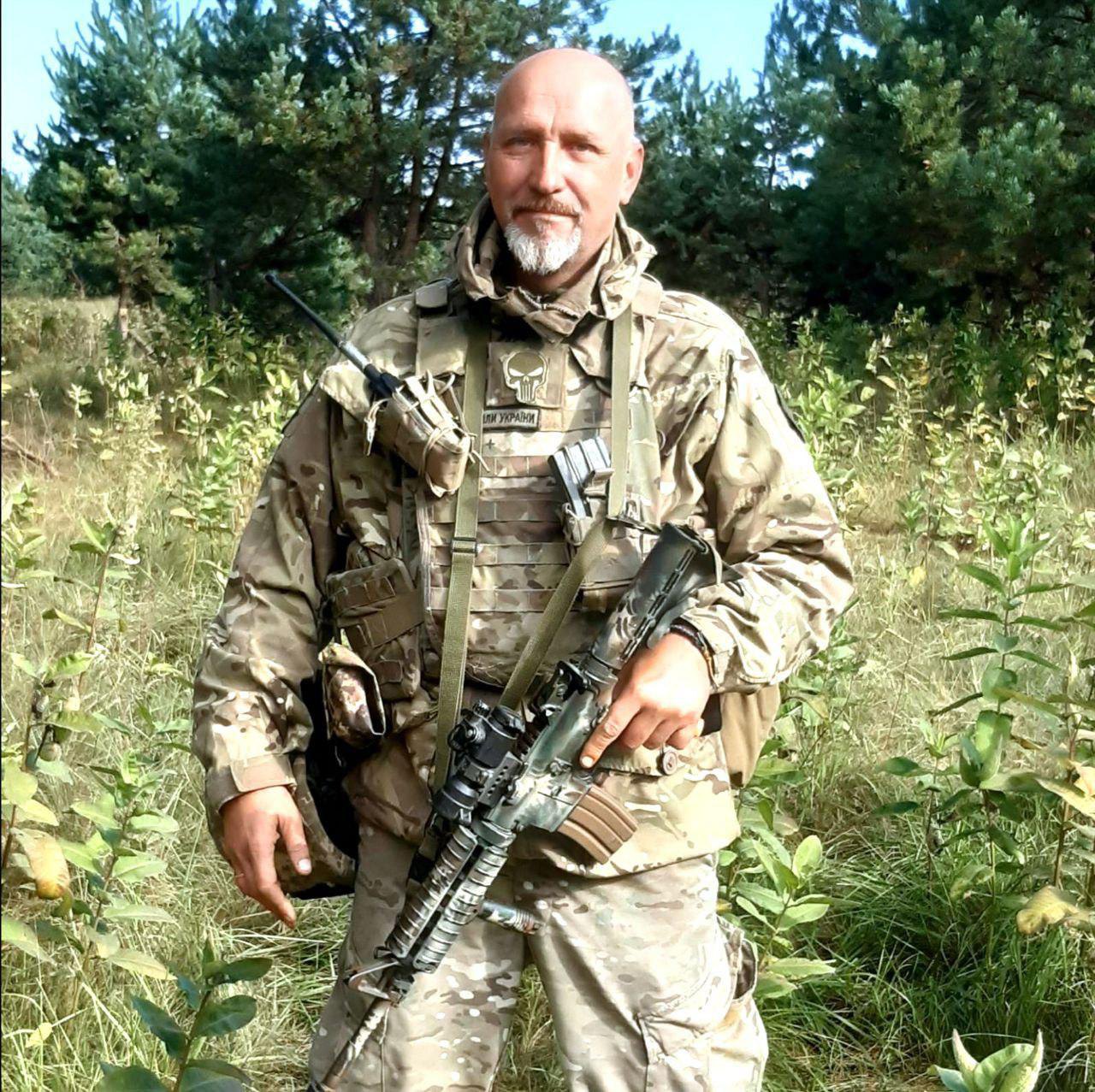
You are warning us that the enemy remains dangerous, and this is true. However, your track record of successful offensive and defensive operations shows that you and your friends are able to defeat them. How do you manage to do that?
Clear target, clear goal what to do. And superior firepower by every soldier. In closer combat our enemies are not so accurate, and they usually push out when we are pushing on. They are afraid of close combat. Close combat for me is like 50 meters. They are not well trained in that. So, we use that, and push, and push. And aggression, of course. You need to push aggressively, but still be in a state when everyone knows what to do. It's not like running crazy, it's a controlled aggression.
Please tell us about the most intense firefight you have had.
It was a couple of months ago when I was a part of a support team for two assault teams that had to overtake enemy positions and push them back to the tree line. The whole morning one Rapira gun and two tanks were continuously shooting at us, and the Russians were also firing at us from the tree line. So, we actually fired probably everything we had into that tree line – 40mm grenades from grenade launchers, RPGs, AT4s, 5.56, 7.62 machine guns. We cleared the forest and kept them down. It was pretty quiet there when we left. And on the other side, the assault team took ground and pushed the Russians from their position. We achieved our goal that day. But we lost some guys.
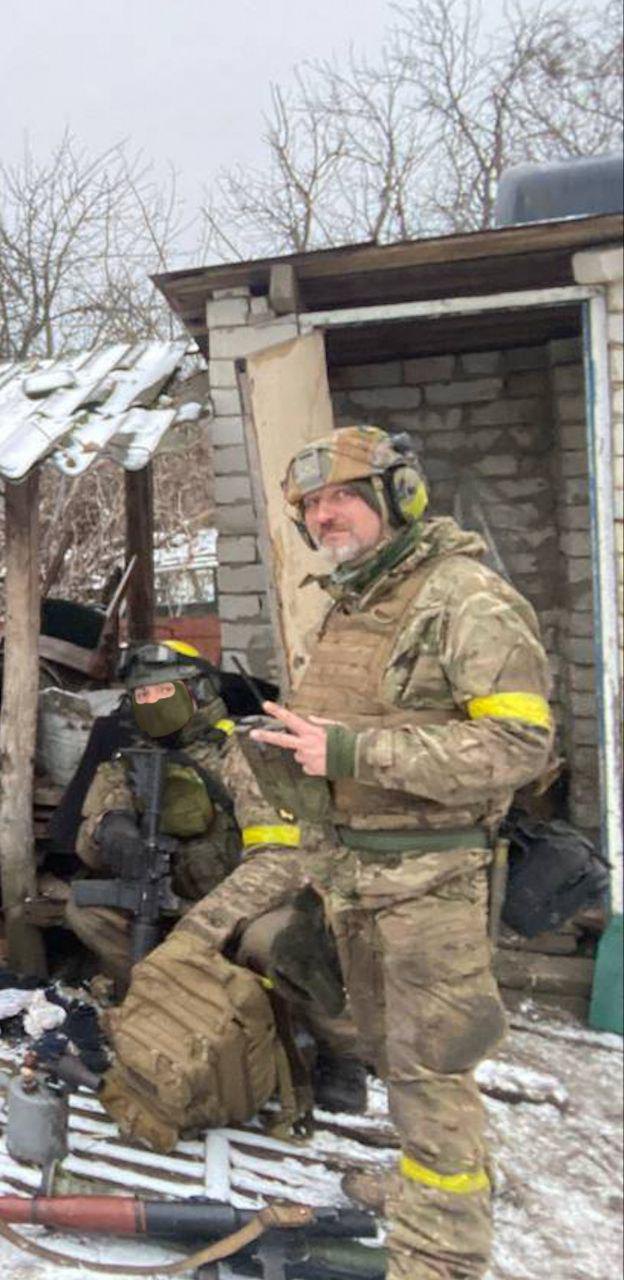
"I can't feel self-pity that I'm wounded"
How did you get your latest injury?
We were on route to evacuate one of our guys from trenches. It was a 200 meters trench; we were six guys carrying the wounded one. It was full of water, and a lot of obstacles in the trench. So it took us probably one hour, or even more, to make that 200 meters. When we reached the end of the trench and tried to go to the evacuation road, we tried to find cover. There was a destroyed tank that we took cover behind in order to take that last leap to the evacuation point. And when we began to move, maybe we moved 10 meters, we got hit, probably it was a tank that hit us. I got hit on my helmet and in my shoulder, shrapnel has cut it over. It's a flesh wound, but still a big one.
What happened next? Now it was you who needed to be evacuated. Were you able to give first aid to yourself?
We got several wounded from that hit. When we got hit, we had one guy that moving in point man's position and carrying his weapon, because we were carrying the litter. When we got hit and I realized that I was hit, I shouted: "I'm hit! I'm hit!". The other guy had already taken cover and shouted: "Come to me! Come to me!". And that's the tactical way to do it. Take yourself out from the fire. You can be stressed, you can have concussion, you don't know where you are, or you panic sometimes. So, it's very good if you have one guy who would actually say: come on here! I took myself there, he tried to apply a tourniquet on me, but it was too high up. Then we checked my head, it was okay. I put my helmet on. Then another guy came, we put tourniquet on him. One by one. And then the guy who was taking cover and was not wounded, he sent us away to the medevac point. So, two guys who could walk, me and another guy, we went there and waited for the rest of the guys to be transported by medevac closer.
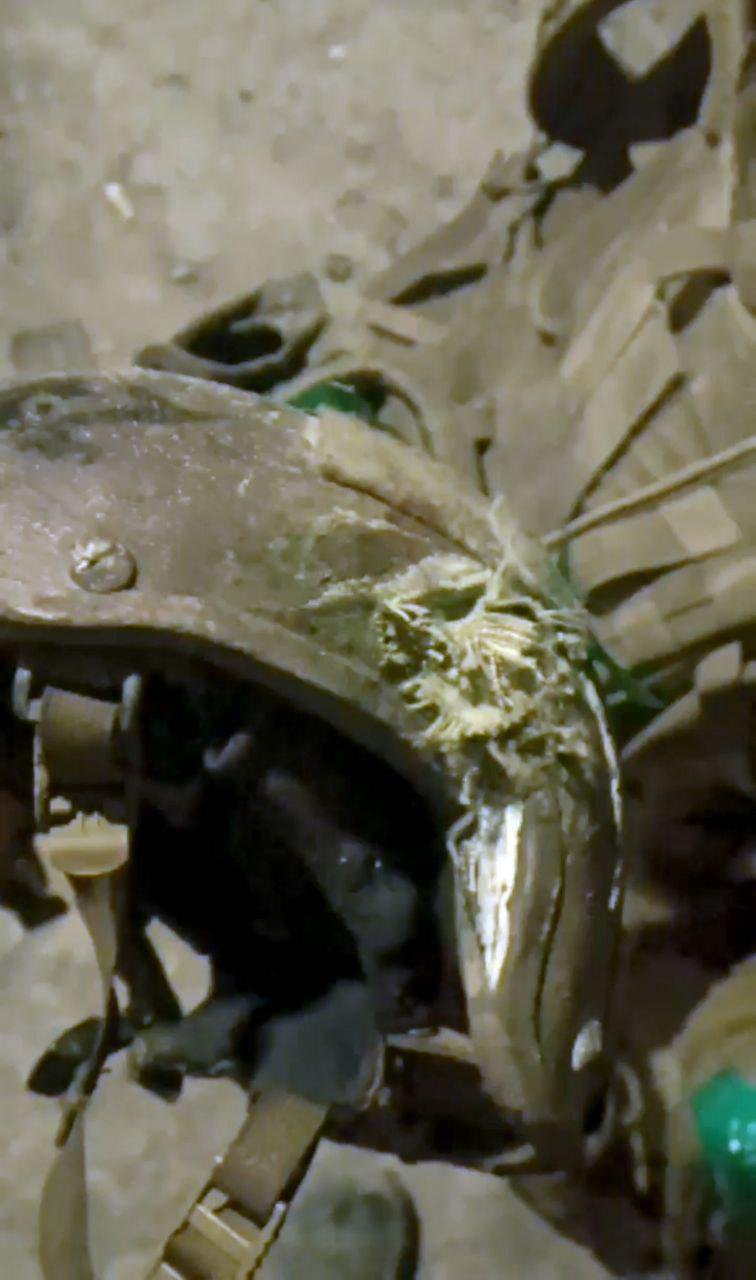
Did you manage to evacuate the wounded soldier who was the initial objective of your mission?
Yes, he is in a hospital. He is doing fine. He is a strong one.
Earlier, we talked to your teammate Hennadiy. What can you tell about him based on your experience of serving together?
We were a couple of guys who were a little bit older – it was me, Johnny and Gena. Usually, Gena and me, we were up early, drinking coffee – he was always drinking coffee with a lot of sweet milk – and just relaxed and talked a little bit. He is a calm guy. He has a clear vision why he is here. I remember one thing: when we were extracted one time from the battlefield on a BTR, I was falling off the BTR (it was bumpy), and he held me, so he actually saved me from falling down.
What are your plans for the nearest future?
I will recover soon, hopefully. Then a short vacation, and then back to my unit.
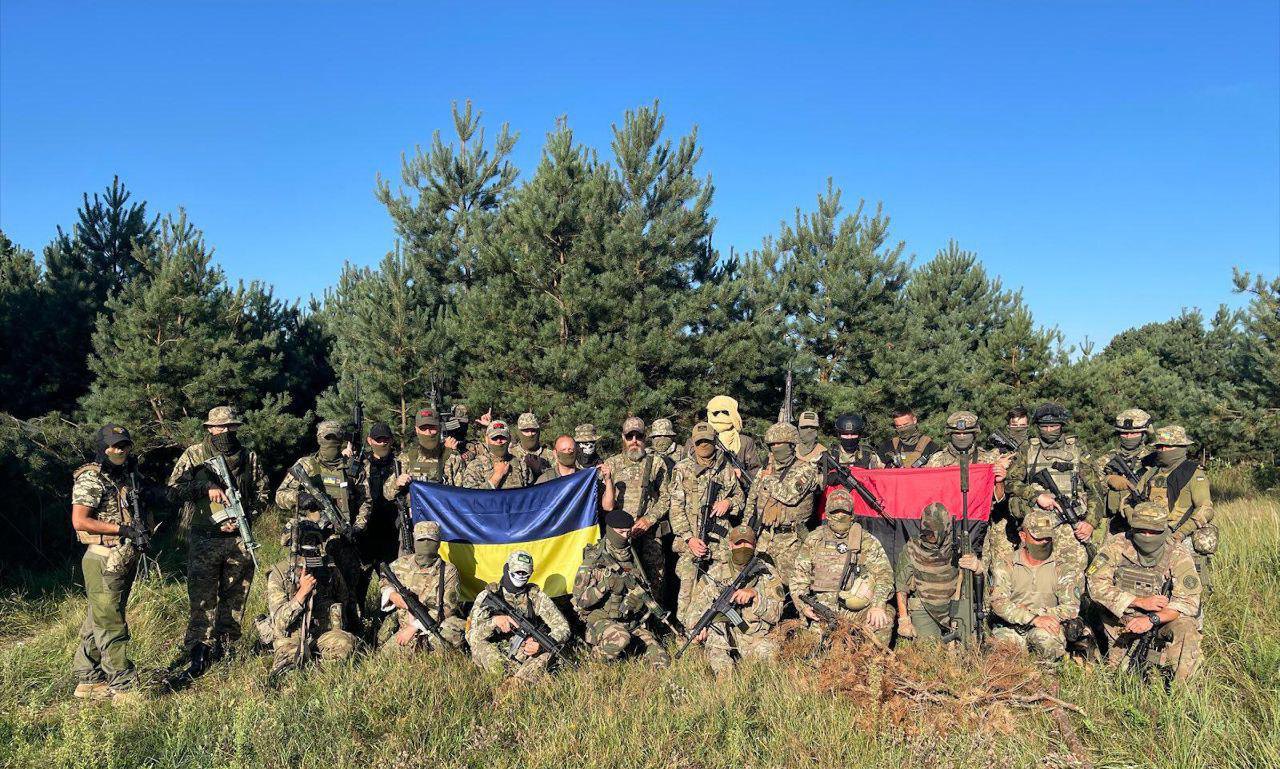
What gives you the energy to return back to combat even under such circumstances?
It's all my friends. They are my family. There's no hesitation like that. I can't feel self-pity that I'm wounded and so on when I know that my guys, my friends and my family are fighting. So, it gives my energy. And of course, you know, we are stubborn. I have Estonian heritage, we are stubborn – they call it stupid. And Swedish calmness, of course. We are calm, but when we decide to do something, we do it.
What are you personally fighting for?
Victory for Ukraine.
Do you know other fellow citizens of your home country fighting in this war?
Yes. We keep in touch, we update each other how it is, both my Swedish friends, with some of the I've been actually serving before, and a couple of Estonian guys. We keep updating each other how everything is going. I have a pretty good idea where everybody is.
How do people treat you at home when you visit Sweden?
With respect, of course. They understand the purpose. Everybody is very interested how it is and so on. But I also know from my previous experience that sometimes it's not even necessary to explain everything we do here, just "Oh, it's good", or "It's pretty bad", or "Everything is going according to the plan". They are curious, of course.
Lots of my old army friends also ask how I'm doing, how I'm feeling, because I'm soon 50 years… Come on! I can beat 20 guys, no problem! I have the physique. We're trained, we can manage that. So, the physique is not problem. And the mentality – sometimes it's very good that you have young guys and old guys mixed up, because the experience from the old guys, and younger guys' "Oh, we wanna do that!" good ideas mixed up gives very good experience.
Home, they are curious. I'll probably go back to Sweden in a couple of weeks. In Sweden, everybody supports Ukraine. In our town we have probably the biggest Ukrainian flag in the center of the town. People are really caring for and helping with volunteer work. A lot of Swedes are here. You, Ukrainians, have shown the world how to be united. And it spreads. You see people gathering around one cause just to help, and that's impressive. That's actually what gives me goosebumps.
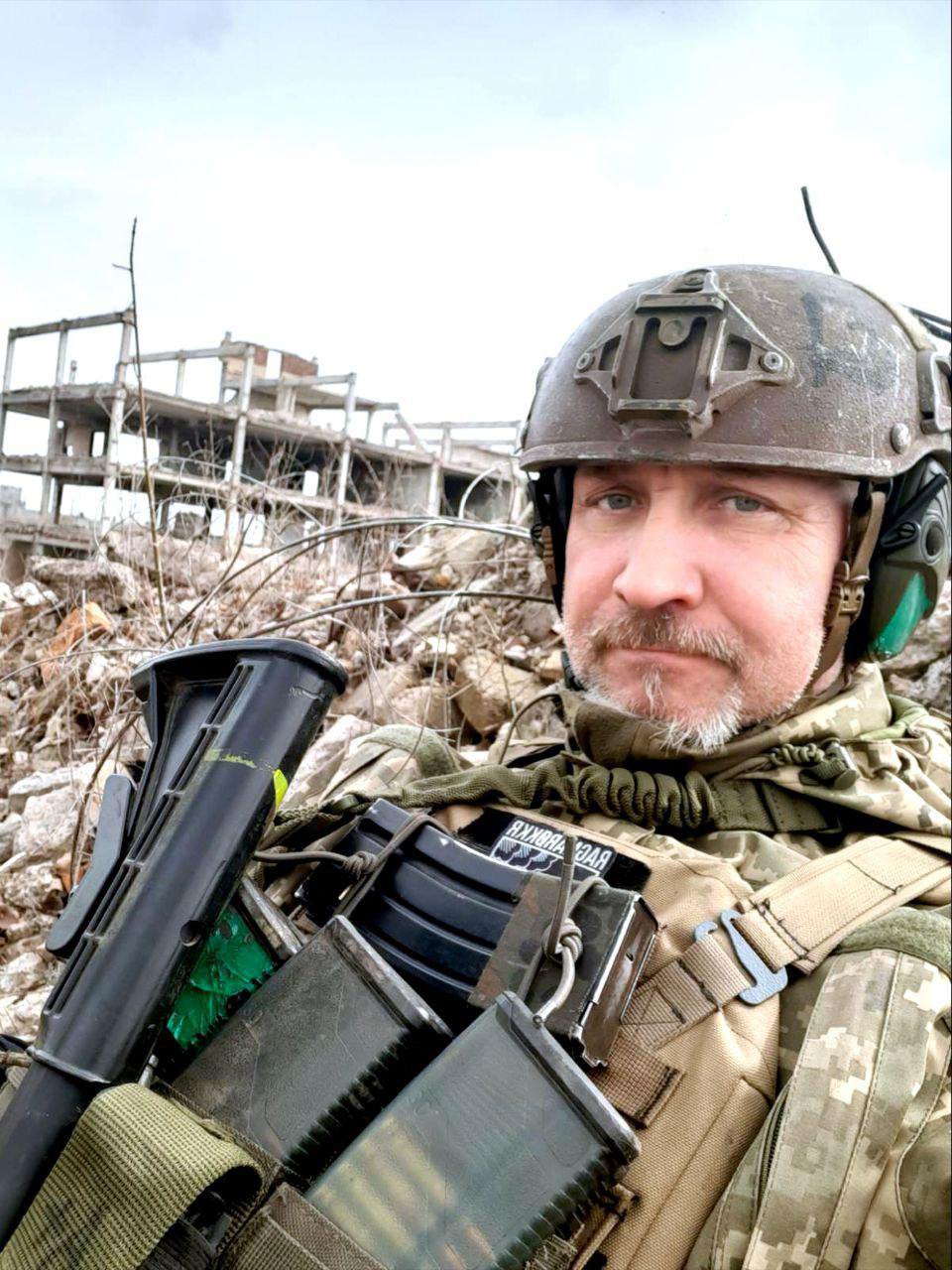
What impressed you the most here in Ukraine outside of the military?
Two things. One thing I've already mentioned is that how Ukrainians manage to get together and be like one fist. And the other thing is your beer.
Bakhmut is now one of the most contested areas, and you actually arrived from there, from the epicenter of fighting. What are the specifics of the fights in and around Bakhmut these days?
It's fierce. It's very fierce intensive fighting 24 hours a day. Heavy shelling, heavy machine guns, rockets. It's position fighting between offensive and defensive positions. It's intense. And it's costly, of course. I don't want to talk about the percentage of how many dead Russians to how many dead Ukrainians. The Russians have enormous losses there. Enormous. But we have losses too. So, we need to keep that going, because we can keep that. Fresh troops to help, and rotate troops how it has been, and Ukraine has done that for eight months. Eight months, come on! That's impressive. But still, they're pushing on, they're using armor. Now they're waiting for the ground to be much harder, and then maybe they can use more tanks and mechanized infantry. But I don't really understand how they can take all the city.
Would you like to give any advice to recently recruited soldiers who are going to be deployed soon?
Yeah. One is, take really seriously on medical training. I know, a lot of guys coming here have good medical training from their previous armies. But keep attention on medical training and the first help on yourself.
Now is the springtime, take care of your feet. They will be smelly, they will be wet and so on. But take care of your feet, because we, soldiers, fight on two things: full stomach, and our feet. And food is no problem here. So, good shoes, and take care of your feet.
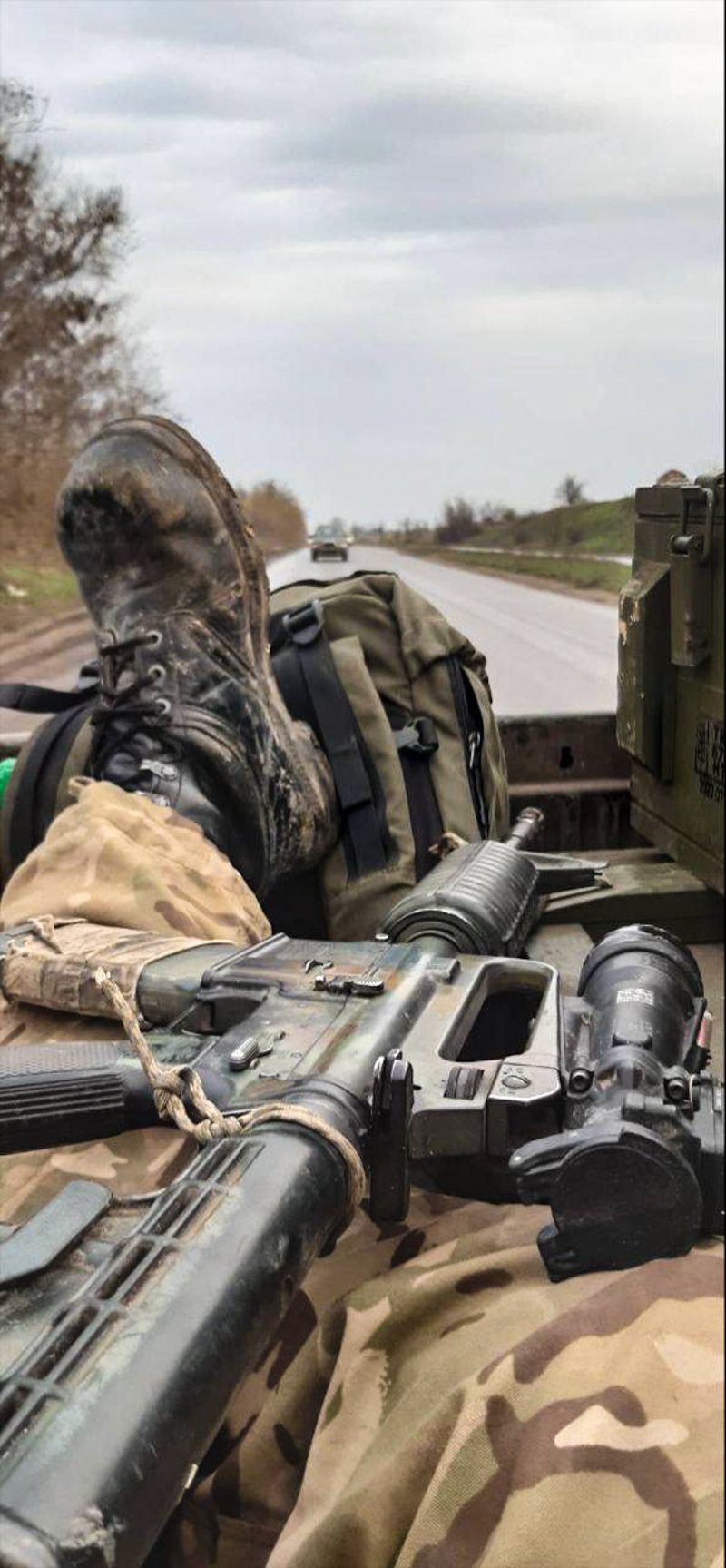
You come from a Scandinavian country. Do you feel the Viking spirit inside you?
Hell yeah! It's an old battleground. It was last time one thousand years ago when Scandinavians with Slavic people here lived together in Kyivan Rus state. Hell yeah, mix Viking with a Cossack, and you have a fucking War party!
Would you like to send greetings to anyone?
I want to say hello to everybody that has supported on my journey here. Lot of Ukrainian guys – thank you for hospitality that you showed me in different situations. All my battle buddies – you are the best! Brothers in arms – thank you!
I wanna also thank my family. You are stronger than me. Thank you!
Translated by Oleksandr Goral







